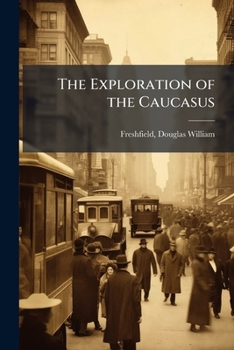The Exploration of the Caucasus
Select Format
Select Condition 
Book Overview
"The Exploration of the Caucasus" recounts the thrilling adventures and geographical discoveries made during expeditions to the Caucasus Mountains. Douglas Freshfield, a renowned mountaineer and geographer, meticulously details the challenges and rewards of traversing this formidable landscape. This book offers a rich blend of historical context, scientific observation, and personal narrative, capturing the essence of exploration in the late 19th and early 20th centuries.
Freshfield's vivid descriptions bring to life the diverse cultures, flora, and fauna of the region, providing a valuable record of a world on the cusp of significant change. Readers will be transported to the rugged peaks and remote valleys of the Caucasus, gaining insight into the pioneering spirit of early explorers and the enduring allure of this captivating region. "The Exploration of the Caucasus" remains a significant contribution to the literature of travel and adventure, appealing to historians, geographers, and anyone with a passion for discovering the unknown.
This work has been selected by scholars as being culturally important, and is part of the knowledge base of civilization as we know it. This work was reproduced from the original artifact, and remains as true to the original work as possible. Therefore, you will see the original copyright references, library stamps (as most of these works have been housed in our most important libraries around the world), and other notations in the work.
This work is in the public domain in the United States of America, and possibly other nations. Within the United States, you may freely copy and distribute this work, as no entity (individual or corporate) has a copyright on the body of the work.
As a reproduction of a historical artifact, this work may contain missing or blurred pages, poor pictures, errant marks, etc. Scholars believe, and we concur, that this work is important enough to be preserved, reproduced, and made generally available to the public. We appreciate your support of the preservation process, and thank you for being an important part of keeping this knowledge alive and relevant.





